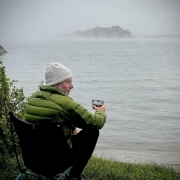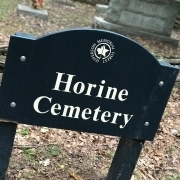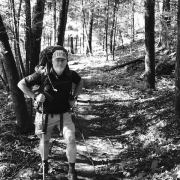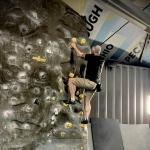How to Parent Your Parent | Healthy Aging Series: S10 E20
You are your parents! Well, not exactly, but your parents will determine who you are and what you do for almost your whole life. Mostly.
How do you feel about yourself? Thank your parents.
How do you save or spend money? Thank your parents.
What kind of car do you drive? Thank your parents. (And how you drive that car.)
How about your attitude about pets, politics, Public Schools, or your love of reading, and music? Thank your parents.
Mostly.
Roots and Wings
We called those things roots. That’s the first of two parenting tasks that need to be accomplished when raising your children. The other is wings. You know, pushing older adolescence out of the nest. Forcing them to become independent, self-sufficient, self-determined.
Both are equally important. Think about the process of developing roots and wings and how it binds you to your parents. It’s impossible to overstate the connection you have with your parents, not to mention the genetic connections. Skin color, height, weight, left-handedness, your dislike of peas and carrots, or cilantro.
The connection that you have with your parents is physical, spiritual, religious, social, and affects everything including your likes and dislikes, even if you are estranged from them. It’s impossible to disentangle.
The Ties that No Longer Bind
Now imagine watching that connection slowly fade into nothing. Imagine the parent who made you who you are, imagine them regressing into someone who has no idea who you are, and for that matter, they have no idea who they are. Regressing is too kind of a word to describe what happens to someone when they develop Alzheimer’s Dementia.
Watching the parent who helped you developed these deep roots and helped you launch into this scary world, watching them, over the course of eight to sometimes 10 years, unbecoming your parent. It’s disheartening and devastating.
I have chosen two books to share and close out my discussion on Alzheimer’s Dementia. Caregivers have written both of these books.
The first is “Walking with Fay,” by Carolyn Birrell. The second is “A Dignified Life: The Best Friends Approach to Alzheimer’s Care,” by Virginia, Bell and David Troxel.
“Walking with Fay” is the eight-year journey that Fay’s caregiver, Carolyn her daughter, takes with her mother who has Alzheimer’s.
It is a story where Carolyn is forced to become the parent of her parent. It is like parenting in reverse. Slowly Fay becomes that newborn-blank slate. That’s what happens with people with Alzheimer’s. They become a helpless, needy, completely dependent human, minus the hope that you experienced when you held that bundle of joy in your arms in the delivery room.
For Fay and Carolyn, the walk was a 7-to-8-year journey through the slough of despair. Like a slow-motion accident being played on a loop. There was nothing Carolyn could do. No veering away or pumping the brakes. If you read “Walking With Fay,” you’ll notice that Carolyn did all the right things. She read lots of books about Alzheimer’s Dementia and books for caregivers. She attended an Alzheimer’s Support Group. She had personal friends, and she developed relationships with people who helped share her burden. Eventually, she let go and placed Fay in a memory care facility.
I’ll share a few of her emotional experiences through the process of letting go. Read each word.
“Things seem to be moving faster. Her changes are more perceptible. It becomes increasingly easy for me to leave her after each visit. Her sense of time is distorted now, and I’ve found that I can simply reach over for a quick squeak or a kiss on the head and say, “OK mom I’m going now, and I’ll be back tomorrow!”. Gone are the days when I’d begin preparing my exit strategy well in advance of my departure and agonizing over that sort of interrogation I received this time. I no longer had to sweat through some story about somewhere I needed to be or the prospect that I had to get things done.”
“I functioned on the level based on my interpretation of what a good daughter should do, not what a loving one would. My visits were born from: I need to ensure my mother was safe. If I missed a day, the anxiety I suffered was nearly unbearable. But I really experience a feeling of longing for my mother‘s actual company and was very aware of its absence. The emotional punishment I handed down to myself for that was relentless.”
“Dementia is dementia, as far as my mother is concerned. I understand there are different nuances among the types, but it doesn’t matter much to me which kind she has. Whether her behaviors resemble someone with Alzheimer’s, Lewy Body disease, Frontal Lobe, or Vascular Dementia, I don’t feel the need to know anymore, and I don’t need to distress her any further to find out. She’s confused, she’s often unsettled, and she’s very suspicious. That’s enough for me to know more than anything for me to manage.”
“My mother was a shell. She was locked away in a confined area of what felt like an insane asylum, and I was the one who put her there. Again, it didn’t matter that I arranged safe shelter for her with more intensive care when she needed it, all I could see were my mistakes, and this one was just another decision.”
“I usually cried a little on the way home. It’s no longer about my hurt feelings over something she said to me, since she no longer speaks, but more over her decline. It is so pronounced now that it’s impossible for me to leave our visits any way, but incredibly sad.”
Walking with Fay was painful and exhausting, like a walk through a desert valley. Maybe that’s the way it’s supposed to be. It’s supposed to hurt when you watch someone, not someone, your parent, dissolve, or rather become the opposite of what they were. They go from being your someone, to something else. I don’t mean that in a disrespectful way. I would strongly advocate for compassionate care and kindness for those going through Alzheimer’s, but there’s little of them left at the end. And many caregivers anticipate a peaceful end.
That was the walk with Fay. Fay had changed. Carolyn had changed. And I had changed, too.
Maybe there was a little synchronicity in my choice of other selection that I read for caregivers. “A Dignified Life,” written by Virginia Bell and David Troxel, from Lexington, Kentucky, provides a wonderful alternative to the parenting model when caring for someone with Alzheimer’s dementia. It addresses the painful process of becoming a parent to your parent with dementia. “Consider being a friend,” they suggest.
Parenting an Adult Child with TBI
As a sidenote, I’ve spent much of my professional life working with persons with brain injuries. In those cases, where adult children experience a brain injury, often they lose their guardianship, forcing their parents to become their guardians. Parents find themselves in a very conflicted relationship with someone that was living on their own, a source of pride and joy.
Imagine having a 27-year-old son or daughter, injured in an automobile accident and now you help manage their life. You are forced to take a parenting role over them. In many situations, these relationships become very conflicted. The brain injured 27-year-old does not want to be treated like a child. It’s a tough situation. How to provide supervision without sounding like a supervisor. The real issue is how to support your injured adult son or daughter without sounding like a parent.
Parenting Your Parent Like a Friend
I think that’s what “A Dignified Life,” is getting at. And so, they’ve chosen a different model. Stop acting and sounding like a parent to your parent. Instead, this program asks you to rethink your relationship with a person you care for and become that person’s best friend.
“Adopting a best friend approach,” they write, “can help diminish the pain and loss you feel about your situation. It can restore a sense of fun, support, good communications, and help you overcome the bad days, and teach you ways to encourage activity. Dementia has changed the relationship you have always had with your family member or friend Memories are lost and routines disrupted, but a best friend approach helps you build a new kind of relationship. They can also be healing. “Mom is now my friend,” one care partner told us. “She doesn’t exactly remember who I am, but we are having more fun than ever as best girlfriends.”
Bell and Troxell’s manual goes into a lot of detail. I encourage you to read the book. Here are the bullet points of the Best Friends Model.
Friends know each other’s personality and history.
Friends do things together.
Friends communicate.
Friends build self-esteem
Friends laugh together
Friends are equals.
Friends work at the relationship.
This is only a thumbnail sketch of this program and they’ve written a lot and provide trainings on how to do the best friend approach, but I think it’s an approach that is worth pursuing.
The Kind and Just Parent
Years ago, I read an excellent book by William Ayres, entitled “A Kind, and Just Parent.“
Ayres was an educator. His book is about two men who worked with children and teenagers convicted of serious crimes, who had been incarcerated in a detention center called Audy House, in Chicago, Illinois.
Here is the lesson learned from supervising teens: Take the power out of the relationship.
I think that’s what The Best Friends Approach attempts to do. It seems to me that the biggest challenge that you will face overseeing your parents with Alzheimer’s is the power struggles, and caregiver burnout.
Maybe the Best Friends Approach helps with both of these dilemmas. I guess the lesson gleaned from these two books is, if you end up parenting your parent with Alzheimer’s, try not to act and sound like a parent.
This is my last dementia memoir. I’ve shared many and they can take their toll on your psyche, witnessing all of the trauma. But for me they were necessary.
I have two more episodes left for this season. The next is about Super Agers, and then the finale.
Take care.













